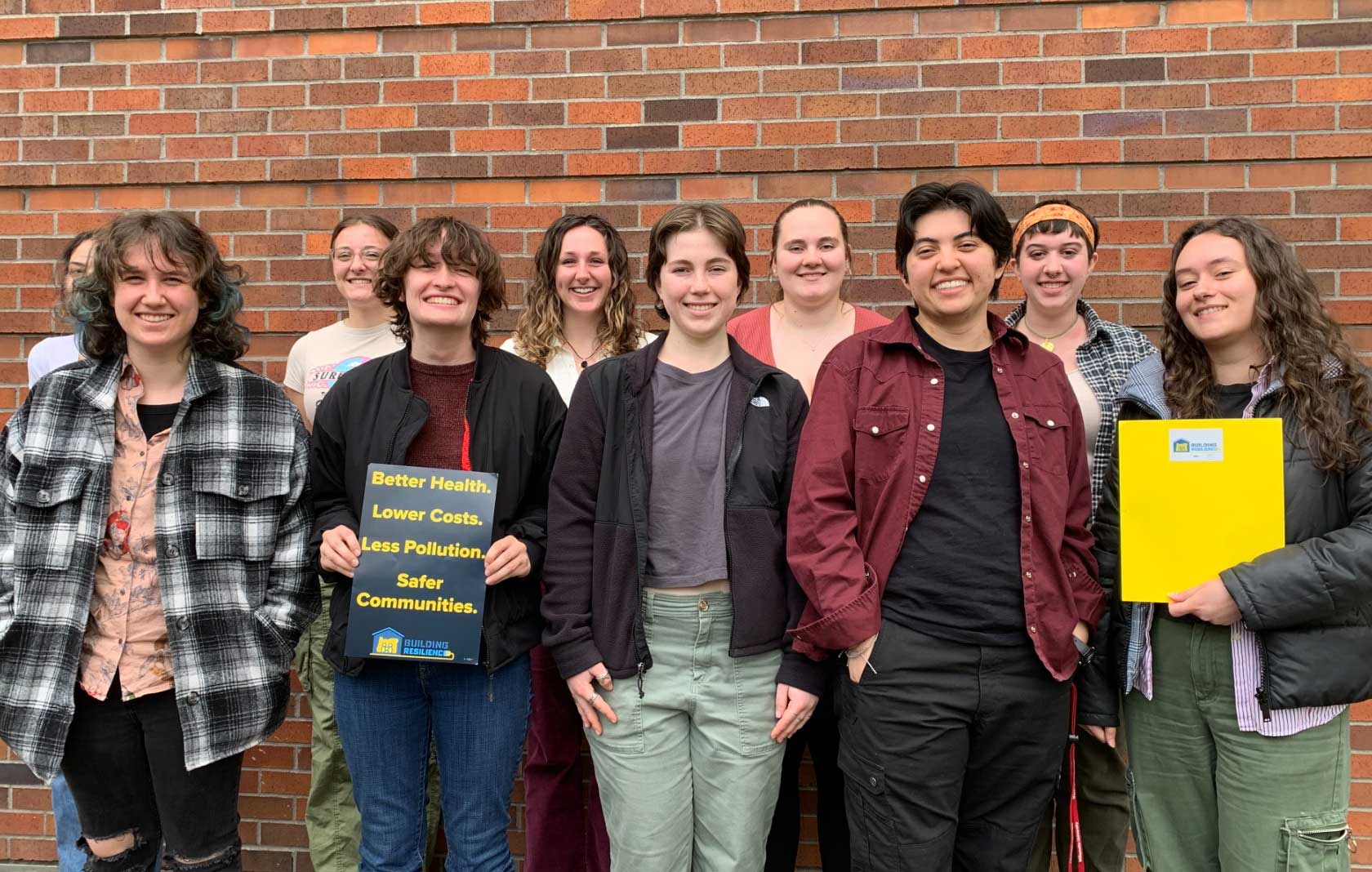Students in Sociology Associate Professor Janet Lorenzen’s Climate Justice Workshop aim to make a difference by taking direct action against climate change. The course looks at how local activist groups address climate inequity with the goal of transitioning off fossil fuels.

“Today’s students understand that individual action is not enough, that we need ambitious solutions with large impact,” reported Lorenzen. This semester, the organizations students are primarily engaged with are Beyond Toxics and their Clean Air Now! Coalition and the Building Resilience Coalition.
Last year, students in the course had the opportunity to support PCUN in promoting a farmworker overtime bill, and this year, the students can support Oregon’s Modernize Air Quality Monitoring Act, State Senate Bill 488A along with other bills to decarbonize buildings. The air quality bill examines exactly what kind of waste is coming out of the Covanta Marion incinerator, 10 miles from campus, just outside Salem in Brooks. “It’s an unincorporated area where people don’t have a lot of political representation,” Lorenzen said. The people living closest to the incinerator are mostly low-income and Latinx. “It’s a textbook example of environmental injustice,” Lorenzen added.
The students devised a new template for providing testimony, which helps others know what to write down while making a testimony/statement in favor of the bill to the legislature. Students also held an educational event, submitted their own testimony, recruited other students to submit testimony, and worked on other bills, such as a K-12 curriculum bill that would help students learn more about climate change and climate action. Nonprofits can advocate for bills, but they cannot support a specific candidate, which is something the class does not do.
Students in the course expressed appreciation for learning the ins and outs of changemaking. “The first step to writing a testimony is to analyze the framing of the bill, and know who your audience is and how to best appeal to them,” said Politics, Policy, Law, and Ethics major Renna Anderson BA ’25. “Doing this process together as a class for SB 488 gave me a good foundation to start with, allowing me to confidently write testimonies on my own for other bills.”
Environmental Science major Sophia Rosenberg BA ’23 agreed, saying, “This experience helped me discover where I can best contribute to activism as a student and helped me learn more about the realm of non-profit and government work on the whole.” Rosenberg is currently the president of Climate Action Alliance on the Salem campus.
The students’ final assignment for the course will be to create a website about climate justice, as cities in Oregon are being asked to address climate change in an equitable way. Serving as a resource for the cities, the website will ask, What is climate justice and how do we put it into practice?
Lorenzen reports that the students have been enthusiastic about taking on climate change issues. “One of the things that I've really enjoyed about the class is that the students fulfill the assignments and then ask, What else should we do?” Students have suggested attending more events, creating a bulletin board or video screen to inform other students about what’s going on at the State Capitol next door, and more.
“Gen Z understands that we need to be more ambitious than just taking individual action like composting,” Lorenzen said. “They understand that we’re on a deadline.”


